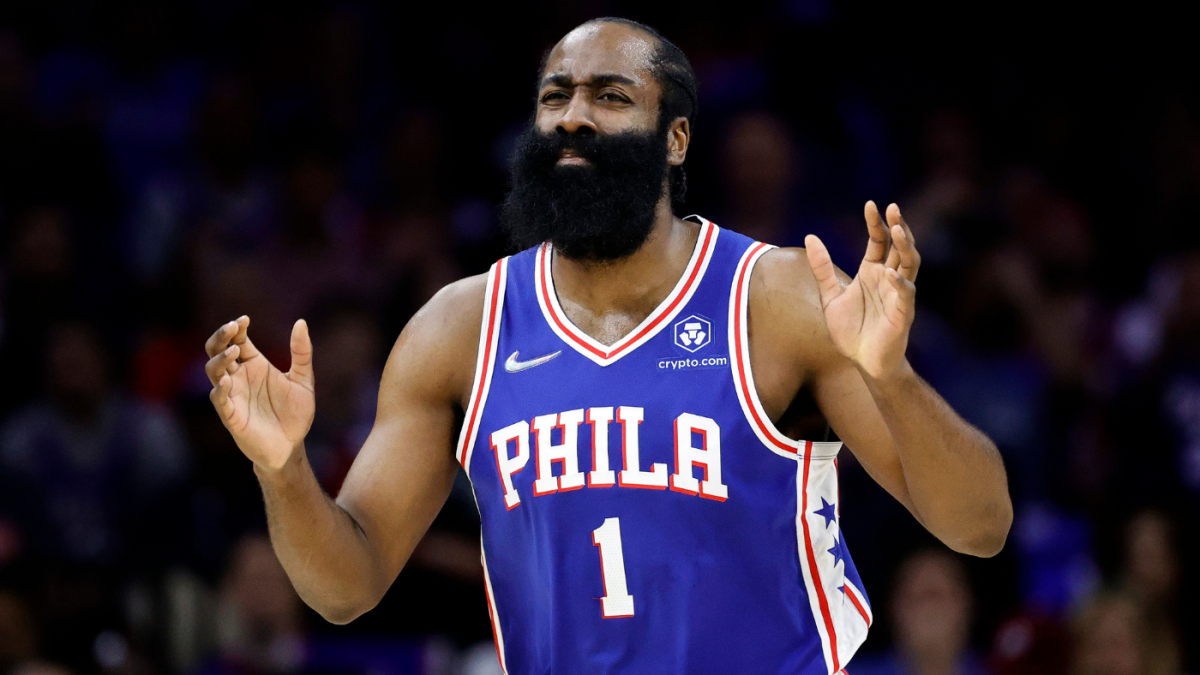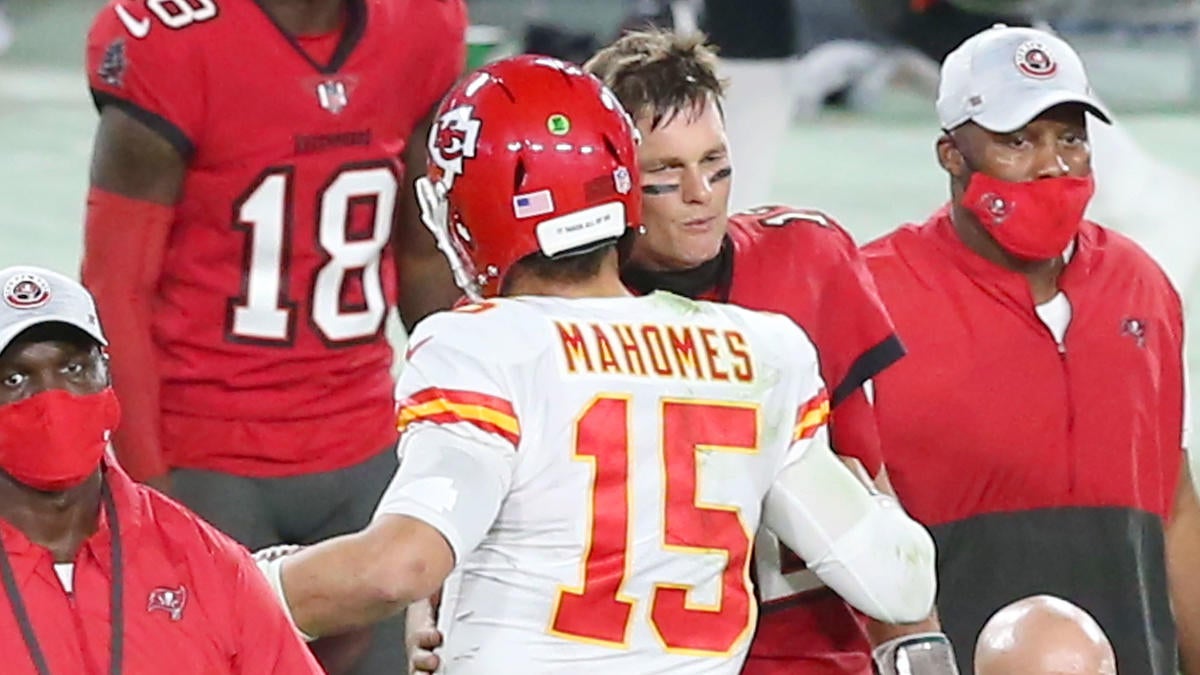James Harden contract: 76ers star’s messy postseason raises questions about potential long-term deal
Written by ABC Audio ALL RIGHTS RESERVED on May 13, 2022


James Harden has had so many opportunities to secure his financial future. The Houston Rockets offered him a $50 million per year extension in 2020. He turned it down. Brooklyn Nets general manager Sean Marks expressed optimism before this season that he would be able to get Harden to sign an even bigger extension—roughly $161 million over three years, in addition to his existing contract—but Harden again declined. He even, theoretically, could have signed a long-term extension immediately upon being traded to the Philadelphia 76ers. Instead, he missed the deadline to pick up his $47 million player option for next season. He’ll have another chance to do so after the season, but the message here has been clear: Harden has prized his personal flexibility above financial security.
That’s a choice plenty of superstars make. It’s never been as expensive as it’s about to be for Harden. His task was relatively straightforward. After a decade as arguably the NBA‘s most durable superstar, Harden needed only to produce three or four more months of All-NBA-caliber play to earn his biggest deal yet. Six months after landing in Philadelphia, Harden would have become eligible for a $223 million extension on top of the $47 million he is already owed next season. That combined payday of $270 million wouldn’t just have been the biggest contract in NBA history. It would have paid Harden more than all but four players in NBA history have made in their entire careers. Not among those four? Harden himself. Had he just looked like a superstar for a few more months, Harden could have literally doubled his career earnings.
I can’t tell you how much money Harden will ultimately sign for this offseason. I’m relatively confident it won’t be $270 million. Such a commitment would be hard for even Harden’s greatest advocate — Daryl Morey — to stomach. Harden would earn over $61 million as a 37-year-old under such a contract. At 32, he’d be lucky to be worth half of that. Harden is coming off of his lowest-scoring season as a starter. His postseason just ended in yet another humiliation. He never once made 10 field goals in a game during the 2022 playoffs. He had more playoff games below 20 points (seven) than he did above (five), and with the season on the line, he took just two shots in the entire second half of Game 6, one of which came in garbage time. It’s been three months since the 76ers acquired Harden, and Morey might already have buyer’s remorse.
Please check the opt-in box to acknowledge that you would like to subscribe.
Thanks for signing up!
Keep an eye on your inbox.
Sorry!
There was an error processing your subscription.
So where do Harden and the 76ers go from here? There are a few options on the table, and none are especially optimistic. So let’s dive into Philadelphia’s murky future by starting with the simplest question on the board… how much is Harden even worth?
What is Harden’s fair market value?
There isn’t an objective answer to this question. We don’t know how much a lingering hamstring injury-hampered Harden this season. Maybe the embarrassment of this postseason is a wake-up call in regards to his personal habits. Former teammate Chris Paul adopted a vegan diet after Harden unceremoniously dumped him in 2019. It changed the entire outlook of his golden years. Paul, who just turned 37 and could easily win his first championship this season with Phoenix, is a better player today than Harden is. A similar adjustment could turn those tables. Harden’s nightlife habits are concerning, but correctable.
Paul lies at one end of the aging guard spectrum. The player he was traded for in Houston is at the other. Russell Westbrook fell from All-Star to also-ran practically overnight because he refused to adjust to his age. He didn’t learn how to cut or defend. Harden hasn’t either. He has a buffer that Westbrook doesn’t thanks to his jump shot, but that is starting to fail him. Harden shot a career-low 33 percent on 3-pointers this season. That might be bad variance. It might be an indication that he’s lost his legs. There’s some evidence behind that. He shot 35.9 percent on 3’s in the first half this season, but just 30.2 percent after halftime, suggesting that he really struggled with in-game fatigue. This is critical for Harden because the bulk of his 3’s have always come as pull-up attempts. He’s never moved consistently enough or released the ball quickly enough to develop the sort of catch-and-shoot rhythm that would serve him well when Tyrese Maxey handles the ball. If he can’t make the shots that he himself is creating, he becomes a substantially less valuable offensive player.
Even at his peak he was a less explosive athlete than Westbrook ever was. He’s lost just as much physically. His first step is gone, and with it went most of the oomph from his legendary deceleration as a driver. Harden’s ability to change speeds means little if he has no speed to start with. Harden averaged 7.3 field goal attempts per game off of drives during his MVP 2017-18 season. He fell to 5.2 with the Sixers this season. Maybe better off-court habits could fix that. Harden, like Westbrook, has never hinted any willingness to change.
Yet Harden was still an All-Star three months ago. Rumors of his demise have been exaggerated to some extent. FiveThirtyEight’s RAPTOR metric still pegged him the 18th most-valuable offensive player this season. Most offensive value metrics place him in the same range—11th in LEBRON, 16th in RPM, 17th in EPM. As much as Harden has lost as a scorer, he’s still well above average in that respect and a spectacular playmaker to boot. That is likely what these metrics are picking up. At the end of the day, a star passer that gets to the line more than almost anyone is still very useful. Even with a steady decline expected, the immediate value of adding an offensive engine like that combined with the mere hope that he might be able to extend his prime through better habits would increase his value.
But there aren’t many precedents for contracts like this because players so rarely decline this steeply this quickly. The ideal structure here would be something close to max money on the front end with significant protections on the back. Ironically, the only analogous deal here belongs to Paul. He re-signed with the Suns last offseason for $120 million over four years… with roughly $75 million of that guaranteed. Phoenix must pay Paul just $15.8 million for the 2023-24 season and can get out of the 2024-25 season entirely if it so chooses. A similar structure at a higher base number is likely “fair” for Harden. He is younger. The cap is higher. He almost never misses games. But even if Paul earns every penny of his deal, he won’t earn half of what Harden could’ve made on his max extension. It’s hard to imagine Harden doing too much better than that in terms of guarantees. It’s harder to imagine him being enthused about such a deal. That begs the question: if Philadelphia isn’t eager to pay Harden, would anyone else be?
Does anyone want to trade for Harden?
What about the past four months of basketball or the past four paragraphs of this story have gotten you excited to pay James Harden deep into his 30s? Philadelphia might fall victim to the sunk cost fallacy. They’ve already invested so much in Harden that they might talk themselves into overpaying him because they can’t stomach the alternative of losing all of the assets they paid for him for nothing. No other team is facing that dilemma. They’d be acquiring him on merit. I’m gonna go ahead and guess there isn’t exactly a line of teams that would be all excited to pay a premium in terms of assets to Philadelphia and cash to Harden to do so. Such a team would have to be preposterously desperate to win right away while understanding that Harden likely can’t be the first option on a playoff offense at this stage of his career.
Only two such teams spring to mind. The Kings have been out of the playoffs for 16 years. Their general manager, Monte McNair, comes from Morey’s tree in Houston. They don’t exactly have a better way of spending their money right now. Vivek Ranadive might genuinely be crazy enough to pay Harden close to max money just to earn a No. 8 seed.
And the Lakers might just be desperate enough to throw all of their remaining draft capital at Philadelphia to turn Westbrook into Harden. The fit is actually quite snug. Harden could ease some of the burden on LeBron James as Westbrook was supposed to, but has just enough shooting gravity to fit alongside him. James can take over primary ball-handling duties in the playoffs. Anthony Davis has been begging for a lob thrower at point guard for two years. Harden certainly fits the bill. But good luck selling Joel Embiid on draft picks, or Morey on another trip down the Westbrook road for that matter. This trade isn’t feasible because, without other moves planned to follow it, it would essentially mean punting away next season. If Philadelphia wants off of Harden this badly, they’re frankly likelier to just let him walk. Speaking of which…
Where is the escape hatch for Philly?
Philly’s present obligation to Harden is minimal. If he chooses to opt out? They can simply let him go. If he opts in — which he hinted at planning to do after the Game 6 loss — they’re in the clear once the $47 million he’s owed next season is paid out. Either way, there is no reason that the Sixers have to pay Harden beyond the summer of 2023. This knowledge is so important for Philly because Maxey remains cost-controlled through the summer of 2023. Afterward, he becomes eligible for a market-value extension that would kick in for the 2024-25 season. Their window to create any sort of cap flexibility is right now.
The Sixers have roughly $153 million on the books for next season. Remove Harden and the non-guaranteed Danny Green and that goes down to around $96 million against a projected $122 million cap. Zach LaVine‘s projected max is $36.6 million, and Bradley Beal‘s is a tick higher at $42.7 million. They’re not in range for that yet, but they’d have pathways to getting there. The easiest would be trading Tobias Harris. That’s certainly unlikely with roughly $79 million owed to him over the next two seasons, but it’s not impossible either.
Keep an eye on Oklahoma City and its expiring cap space. The Thunder are far below the cap right now, but that changes once the league year turns over after the draft because Shai Gilgeous-Alexander‘s new contract will kick in. Sam Presti could save Morey roughly $30 million in 2022 cap space by swapping Harris for Derrick Favors, and in the process, he’d likely be able to extract the meager draft capital Philly still has left. The only caveat is that such a deal would need to be completed before the NBA Draft, as afterward, the league’s calendar flips over and Gilgeous-Alexander’s new cap number wipes away any remaining Oklahoma City space.
Here’s a slightly more realistic option: Harris for Buddy Hield. The Pacers would be sacrificing meaningful 2022 and 2023 flexibility, but it’s not as though Indiana is a free agent destination. Turning Hield into Harris could break up their guard glut, remove the need to re-sign TJ Warren and earn Kevin Pritchard some extra draft capital. Not too shabby, especially if the Pacers could extract Matisse Thybulle in the deal. Unlike Favors, Hield could genuinely help the Sixers next season. Westbrook’s name bears mentioning here purely as an expiring contract they could probably acquire for Harris without surrendering any extra assets, but the same caveats as above still apply.
Moving Harris is Philly’s easiest ticket into free agency, but there’s more fat to be trimmed here. Furkan Korkmaz ($5 million), Georges Niang ($3.5 million) and even Thybulle ($4.4 million) are all relatively valuable at their price points, but expendable should the need arise. Getting rid of them would force Morey to reload the bench on the fly, but that has always been a strength of his. He is a star-driven executive. If he views LaVine or Beal in 2022, or one of the 2023 free agents as meaningful and attainable upgrades to Harden, he’s not going to let his bench stand in the way.
But even if this is a possible pivot, it’s not a preferable one for either side. Harden just doesn’t have the leverage to opt out right now. No team is currently projected to have enough cap space to pay him the max (though, as NBA history has taught us, that can change). The five teams currently projected to have any practical cap space are the Magic, Pistons, Pacers, Spurs and Blazers. Do any of them sound especially appealing to a former MVP trying to win his first ring? Maybe Portland?
Harden’s best chance at winning is still Philadelphia, and even with free agency on the horizon, his best chance at getting paid is winning. Some desirable team would have moved mountains to create the cap space needed to sign Harden two or three years ago. That probably isn’t the case right now. He needs to rehabilitate his own value to either take a shot at someone else’s 2023 cap space or more likely remain with the 76ers through their Bird Rights. That makes an opt-in likely, and so, Philly kicks the possible cap space can down the road to 2023.
There isn’t a Beal or a LaVine waiting for them then. The closest thing to an “in their prime superstar” will likely be… wait for it… Kyrie Irving! He comes with a host of other issues the Sixers might not want to subject themselves to. There’s an even bigger name on the board, but if the Sixers are comfortable paying a geriatric legend, they’d probably just talk themselves into Harden rather than taking the LeBron James plunge. He’ll turn 39 before the 2023-24 postseason, and sooner or later, you’d figure his age will catch up to him. Khris Middleton is probably extending before next summer. Fred VanVleet would fit wonderfully next to Maxey, but he’s not the sort of All-NBA co-star Morey wants to find for Embiid. Maybe Maxey ascends to that level and the 76ers are comfortable paying a third banana.
But all of this becomes simpler if Harden just turns back into Harden next season. For all of the possible machinations available to the 76ers right now, that is the solution both sides are hoping for. Maybe Harden gets healthy this offseason. Maybe he changes his diet and his nightlife habits. If he does these things, we might be celebrating the 2022-23 Philadelphia 76ers as NBA champions and Harden as one of the league’s highest-paid superstars for years to come. But as things stand right now? The Sixers are about as far away from that trophy as Harden is his from that last payday.
The post James Harden contract: 76ers star’s messy postseason raises questions about potential long-term deal first appeared on CBS Sports.







